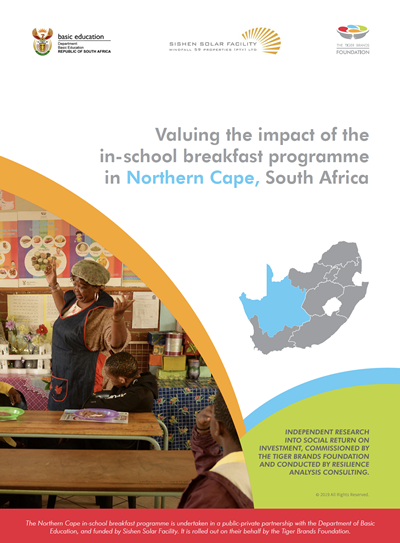Home /
Nourishing communities through in-school breakfasts
76 Kitchens Constructed
149 894 Food Hampers Distributed
3
Principals
conferences
since 2011
710 Food handlers trained
Help us strengthen our impact through a more responsive school nutrition strategy.

The Tiger Brands Foundation (TBF) enters a new strategic phase in 2023. The primary objective of this approach is to build more enduring and meaningful partnerships committed to the long-term value of a nutritious breakfast meal for learners in vulnerable communities.
KHULISA Strategy
By 2028, TBF will champion and promote the expansion of quality breakfast to more vulnerable learners in South Africa every school-day.
The Tiger Brands Foundation (TBF), through partnership with The Department of Education (DBE), works to improve malnutrition in South Africa’s school-going youth by providing a robust and quality in-school nutrition programme that includes breakfast and lunch, by 2035.
Join the movement
Learn more by signing up to receive our quarterly newsletter or how you can become a partner.

With your help we can feed a brighter future
We need to focus on strengthening our partnerships to deliver meals to more schools and improve outcomes for learners in South Africa, benefiting society as a whole.
Celebrating 100 million meals milestone
By multiplying our efforts we can secure a nation's potential
Improving the lives of vulnerable learners and their surrounding communities by creating and implementing sustainable, scalable and replicable programmes that enhance nutrition and education.

“to grow or foster the development of a person or community”
… so The Tiger Brands Foundation starts with breakfast.
Next Five Year Adventure
Khulisa is about focussing on getting more vulnerable learners fed a high-quality nutritious breakfast, as a starting point. By starting with this focus, it can be asserted that those with the most dire need are prioritised for service.








